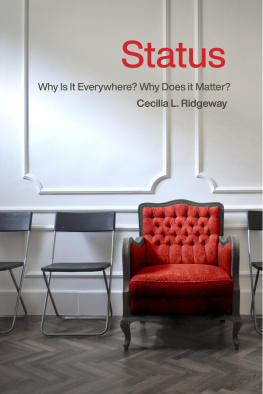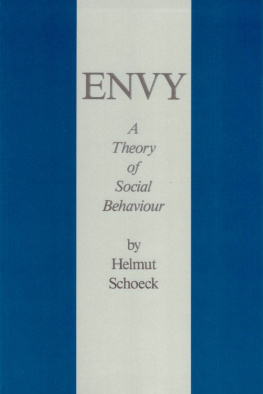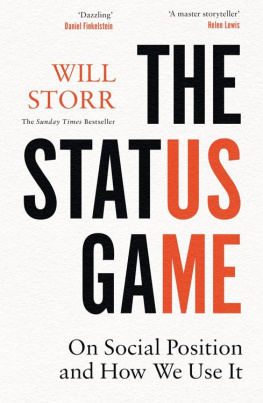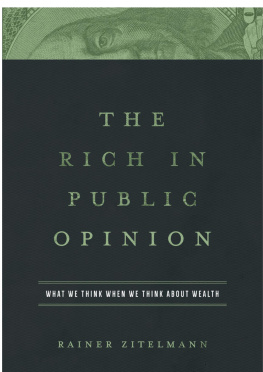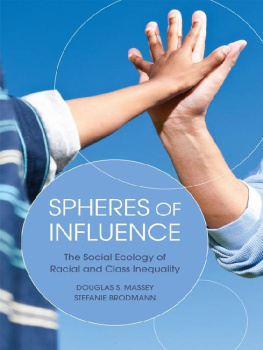Susan T. Fiske - Envy Up, Scorn Down: How Status Divides Us
Here you can read online Susan T. Fiske - Envy Up, Scorn Down: How Status Divides Us full text of the book (entire story) in english for free. Download pdf and epub, get meaning, cover and reviews about this ebook. year: 2012, publisher: Russell Sage Foundation Publications, genre: Politics. Description of the work, (preface) as well as reviews are available. Best literature library LitArk.com created for fans of good reading and offers a wide selection of genres:
Romance novel
Science fiction
Adventure
Detective
Science
History
Home and family
Prose
Art
Politics
Computer
Non-fiction
Religion
Business
Children
Humor
Choose a favorite category and find really read worthwhile books. Enjoy immersion in the world of imagination, feel the emotions of the characters or learn something new for yourself, make an fascinating discovery.
- Book:Envy Up, Scorn Down: How Status Divides Us
- Author:
- Publisher:Russell Sage Foundation Publications
- Genre:
- Year:2012
- Rating:4 / 5
- Favourites:Add to favourites
- Your mark:
Envy Up, Scorn Down: How Status Divides Us: summary, description and annotation
We offer to read an annotation, description, summary or preface (depends on what the author of the book "Envy Up, Scorn Down: How Status Divides Us" wrote himself). If you haven't found the necessary information about the book — write in the comments, we will try to find it.
What motivates individuals, groups, and cultures to envy the status of some and scorn the status of others? Who experiences envy and scorn most? Envy Up, Scorn Down marshals a wealth of recent psychological studies as well as findings based on years of Fiskes own research to address such questions. She shows that both envy and scorn have distinctive biological, emotional, cognitive, and behavioral characteristics. And though we are all wired for comparison, some individuals are more vulnerable to these motives than others. Dominant personalities, for example, express envy toward high-status groups such as the wealthy and well-educated, and insecurity can lead others to scorn those perceived to have lower status, such as women, minorities, or the disabled. Fiske shows that ones race or ethnicity, gender, and education all correlate with perceived status. Regardless of whether one is accorded higher or lower status, however, all groups rank their members, and all societies rank the various groups within them. We rate each group as either friend or foe, able or unable, and accordingly assign them the traits of warmth or competence. The majority of groups in the United States are ranked either warm or competent but not both, with extreme exceptions: the homeless or the very poor are considered neither warm nor competent. Societies across the globe view older people as warm but incompetent. Conversely, the very rich are generally considered cold but highly competent. Envy Up, Scorn Down explores the nuances of status hierarchies and their consequences and shows that such prejudice in its most virulent form dehumanizes and can lead to devastating outcomes from the scornful neglect of the homeless to the envious anger historically directed at Tutsis in Rwanda or Jews in Europe.
Individuals, groups, and even cultures will always make comparisons between and among themselves. Envy Up, Scorn Down is an accessible and insightful examination of drives we all share and the prejudice that can accompany comparison. The book deftly shows that understanding envy and scorn and seeking to mitigate their effects can prove invaluable in our lives, our relationships, and our society.
Susan T. Fiske: author's other books
Who wrote Envy Up, Scorn Down: How Status Divides Us? Find out the surname, the name of the author of the book and a list of all author's works by series.



